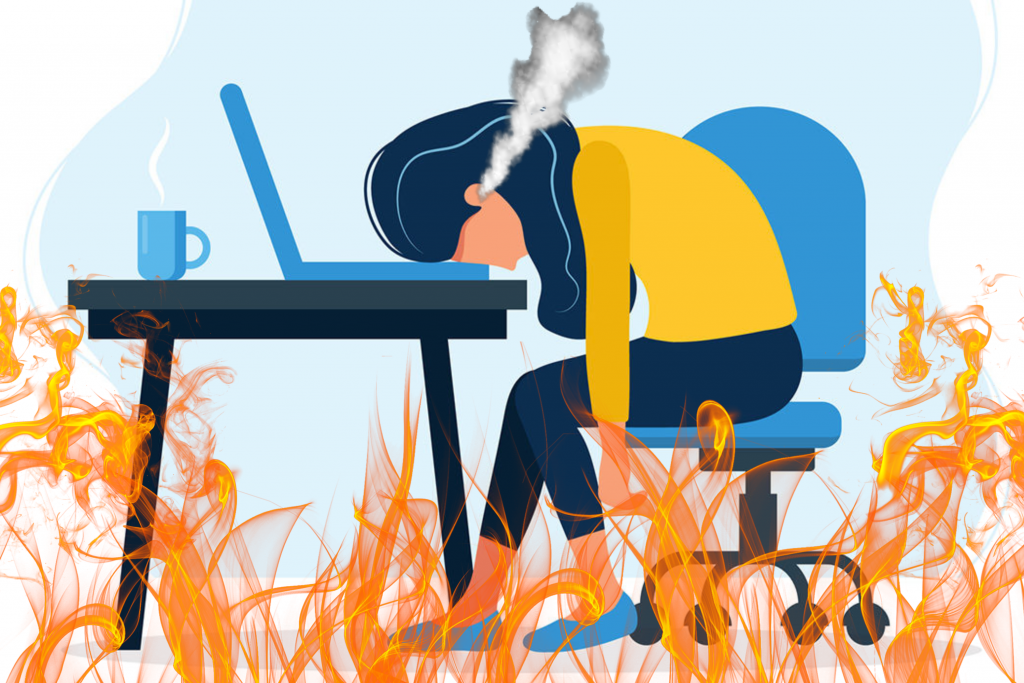Strategies to Help Prevent Burnout
” Can you remember how you woke up one morning feeling utterly exhausted even though you have slept through the night or do you feel overwhelmed with the demands of work and other areas in your life?” Burnout is a ‘occupational phenomenon’ not only limited to persons working what one would refer to as a stressful sector of the economy . It can affect anyone having to battle chronic stress in their careers or in their personal lives.
Recognize and Respond to Stress
Stress is felt on the body and this may include a frequent change of clothes, tiny wrinkles on the forehead, palpitating stomach, contracted muscles, among others. This way, one can take necessary precaution when stress starts to show signs before it worsens. Activities that fall under the wellness category of reliable activities can include going for walks or journaling to avoid acute stress from becoming chronic.
Set Clear Boundaries
Thus, defining and managing the expectations properly is central to avoid overworking the employees. As a central idea that needs to be underlined, it is possible to state the important fact that the cases appropriate for your possible solution must be clearly defined not to overload you. Boundaries are healthy in the workplace and help one to manage their tasks proficiently.
Achieve Work-Life Balance
This is why one needs to be extremely careful about managing working and personal life. Working to play and playing to work enhances performance and contentment in the workplace. Time for other activities besides work is a motivation and brings energy at work when one gets a chance to engage in the activity.
Prioritize Self-Care
Self-care refers to activities in which an individual enhances his/her physical and or psychological well-being. Healthy diet, sufficient and proper intake of water, proper rest and sleep are basic. Take part in hobbies and other activities that help relieve stress, such as reading or spending time with others, for better overall health.
Incorporate Exercise and Mindfulness
This section shows how exercises and mindfulness can help deal with stress. Yoga aids in keeping energy high, and meditation and mindfulness decrease the pressure and bring down stress and anxiety levels and also fix sleep issues. For improving the stress management, incorporate these practices into your course of daily life.
Take Regular Breaks
Take a pause from your work throughout the day, so the body can rest for a while. Slight breaks refer to brief interruptions within the day or work, while extended breaks like the holiday, weekends, etc. help one to have a change of mind and prevent becoming sluggish. One must take time off or a break, as it is important for the continuity of his or her good health.
Build a Support Network
A goal of support is crucial, therefore, having a supportive work environment is important. Ask family, friends or a workmate whom you can talk with and he or she will be supportive. Support network is critical in managing the amount of stress that accumulates in the organization and reduces the chances of getting burned out.
Recognize the Signs of Burnout
It is, in fact, manifested in fatigue and breakdown of the individual, negative attitude towards the job, and loss of professional efficacy. If you encounter such symptoms, ensure you treat them so that they do not worsen. Burnout affects health and work, and its identification is important.
When to Seek Professional Help
If coping strategies don’t work, or if you have continuing fatigue or bodily signs, get medical advice. If you also experience symptoms of clinical depression and include low self-esteem or feelings of hopelessness, it is better to consult a doctor.
Effectively preventing burnout requires a proactive and holistic approach. By recognizing early signs of stress, setting clear boundaries, and maintaining a healthy work-life balance, you can manage your workload and personal demands more effectively. Prioritizing self-care, incorporating exercise and mindfulness practices, and taking regular breaks are essential for sustaining both mental and physical health. Building a strong support network further enhances your ability to handle stress. Understanding and addressing the signs of burnout early can prevent more severe consequences. By integrating these strategies into your daily life, you empower yourself to navigate challenges with resilience, ensuring long-term well-being and maintaining a balanced, fulfilling life.












